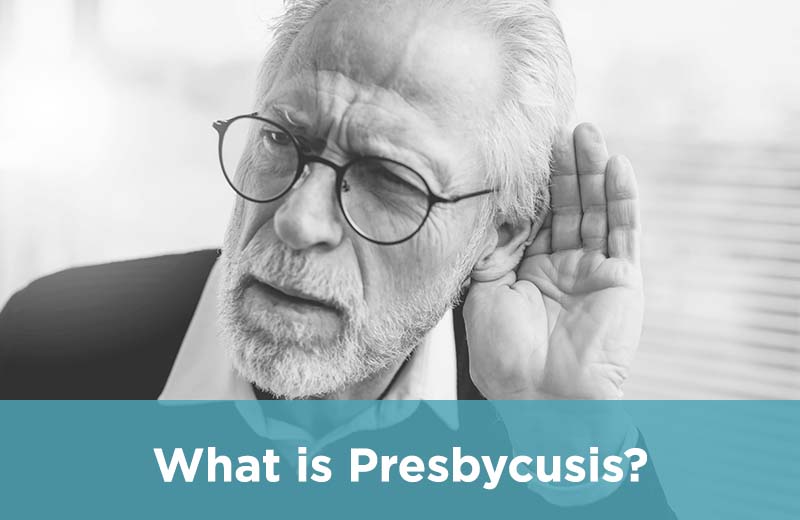What is Presbycusis?

The terms used to describe and diagnose different hearing conditions can be hard to spell and hard to understand. And if you’re experiencing or at risk for developing age-related hearing loss, one of the most common terms you’ll come across is “presbycusis.”
Presbycusis simply refers to the condition of age-related hearing loss. It’s a highly common condition, especially in people over the age of 65, with 30-35% of adults at this age experiencing some degree of hearing loss, with the rate increasing with each decade over this threshold.
The common symptoms associated with presbycusis are a loss of hearing in the upper range of auditory frequencies. These pitches help clarify speech, as they carry the pitches of consonants like “t” and “k,” and losing hearing in this range can make it harder to understand people. Hearing loss can also lead to tinnitus when the brain tries to make up for the lack of stimulation in the high frequencies in a way that people perceive as ringing or whistling.
Most people with presbycusis simply develop it naturally, although there are risk factors that can make it more likely to develop, including diabetes, high blood pressure, and other underlying medical conditions.
Find Treatment for Hearing Loss
To learn more about age-related hearing loss, or to get a comprehensive hearing test to determine if you may be suffering from presbycusis and its related symptoms, don’t hesitate to contact our team and schedule an appointment today.



